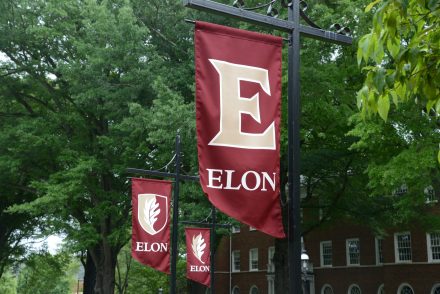President Connie Ledoux Book on the university's move from the Master's Universities category to the Doctoral Professional Universities category in the Carnegie Classification of Institutions of Higher Education.

When people share the success of Elon, the story rarely begins with failure. Yet, lessons learned from failure provided a foundation upon which to build our university of national renown. Elon was established in 1889 as the fourth attempt by the then-Christian Church to bring the essential seed of education to its ministry. That’s right — the fourth time was a charm.
I was intrigued by the hard-hitting language in the church’s 1857 Committee on Education report to the powers that be when it was clear church leaders had to close their first attempt to establish the Graham Institute in eastern Alamance County. “Let us arouse ourselves from our stupidity, awake from our lethargy, and bend ourselves to the task, and resolve to do something…” And so they did, creating Graham College. Establishing a college on limited resources was not going to be easy. Solvency required leadership by every employee.
The coeducational Graham College was a trailblazer because it realized the potential of educating women. But by 1863, the Civil War and mounting debt made it impossible to keep the college open. The third attempt in 1881 established Graham Normal College, focused on providing degrees in education and preparing teachers. That effort served as the forerunner for the magical and final fourth attempt, when Graham Normal College was repositioned to make way for a new school, Elon College, located in western Alamance County at Mill Point. With a menu of comprehensive offerings, the school had the ingredients of an established institution, having learned important lessons from the founders’ earlier failures and retaining an understanding of the importance of being adaptable.
In the midst of their failure, tweaks and relaunches, could Elon founders have envisioned the great university that developed from their efforts? Certainly those dark and uncertain days obscured the full promise of their work.
From the very beginning, the people of Elon understood the power of taking risks, learning from failures and moving forward yet again with the desire to always be better.
As we prepare to begin the upcoming academic year, I wish I could send a breaking news flashback to those visionary leaders about important developments expanding Elon’s position of influence on the national higher education landscape. Earlier this year, the Carnegie Classification of Institutions of Higher Education moved Elon and 151 other institutions from the Master’s Universities category to the Doctoral Professional Universities category.
Universities in this category are national in scope and positioned to lead. They feature strong professional degrees while remaining laser-focused on what matters most — students. Distinct from research focused universities, schools in Elon’s new category focus on excellent teaching and mentorship, innovation, and the powerful synergy of undergraduate majors and professional graduate programs, such as Elon’s programs in law, physical therapy and physician assistant studies. This category closely associates Elon with other universities known nationally for excellence, including Gonzaga, Pepperdine, Santa Clara and Creighton.
The almost 50-year-old Carnegie Classification system is the leading framework for recognizing, describing and studying institutions in U.S. higher education and forms the basis for major college rankings, including those by U.S. News & World Report. As a result of the Carnegie reclassification, Elon will move from the U.S. News Regional Universities ranking to the National Universities ranking. When the rankings are released in September, Elon will join the nation’s most elite institutions, and celebrate our arrival as a nationally recognized leader in American higher education.
This new position of leadership is no accident, but rather is the result of a long history of resiliency and a culture of determination established by our founders. From the very beginning, the people of Elon understood the power of taking risks, learning from failures and moving forward yet again with the desire to always be better.
The destiny is excellence. The vision is ongoing transformation.
Connie Ledoux Book
President


